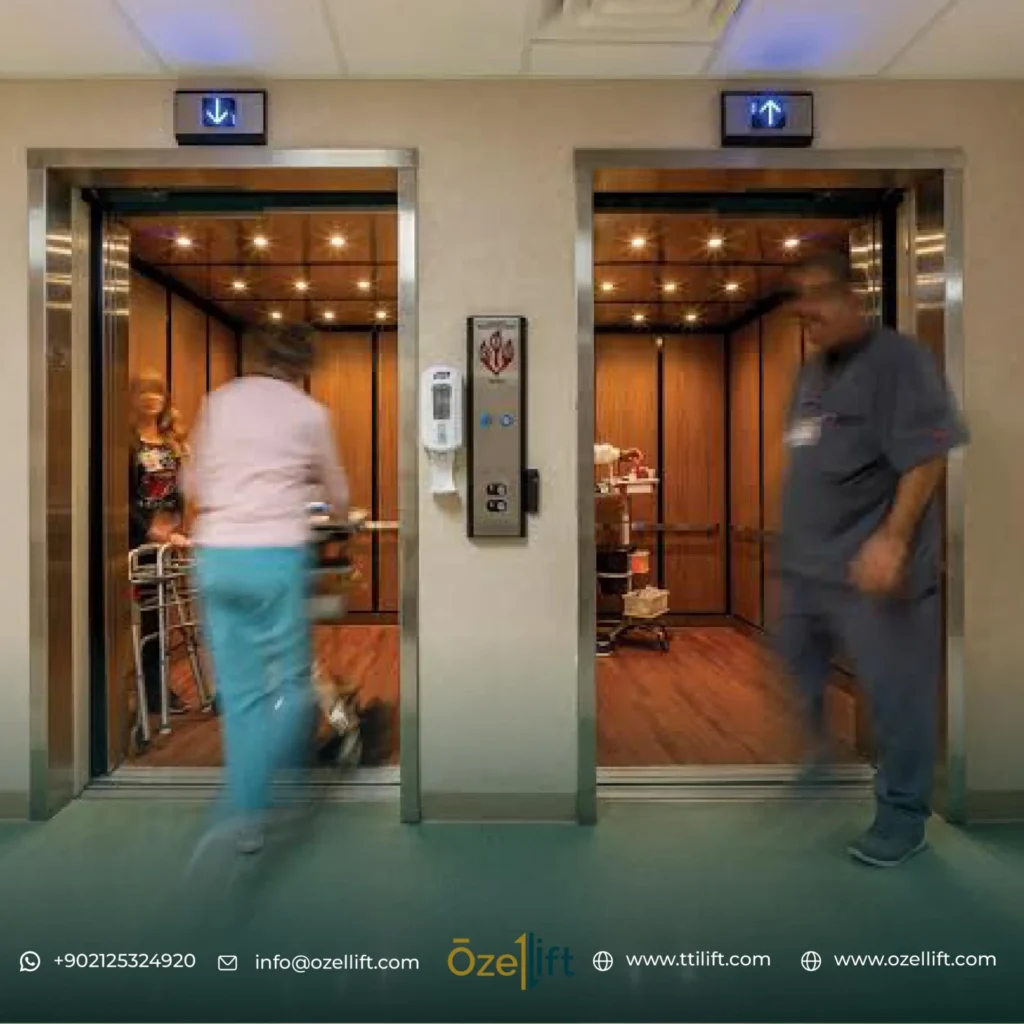Are you in the process of building or renovating a hospital and wondering about the cost of installing an elevator? Look no further. In this article, we will explore the intricacies of hospital elevator cost and provide you with all the information you need to make an informed decision.
Average Hospital Elevator Cost
Hospital Elevator Cost can range from $30,000 to $100,000 per unit, The cost of installing a hospital elevator can vary significantly depending on several factors, as discussed earlier. However, to provide a general idea, let’s explore the average price ranges for different types of hospital elevators.
Passenger Elevators
On average, passenger elevators for hospitals can range from $30,000 to $70,000 per unit, excluding installation costs. This price range includes standard features and capacity suitable for most hospitals. However, additional features, upgrades, or larger capacities can increase the cost accordingly.
Service Elevators
The average cost of a service elevator can range from $40,000 to $100,000 per unit, excluding installation costs. The final price will depend on factors such as load capacity, size, and additional requirements.
Service elevators, designed for the movement of medical equipment and supplies, generally have higher load capacities and specialized features.
Specialized Elevators
The cost of these elevators can vary significantly based on the specific design requirements. It is recommended to consult with elevator manufacturers or experts to get detailed estimates for specialized elevators.
Specialized elevators, such as stretcher elevators, bed elevators, or MRI-safe elevators, often require customized configurations and additional safety measures.
It is important to note that these price ranges are approximate and can vary based on factors such as the region, manufacturer, and specific project requirements. Therefore, it is crucial to obtain detailed quotes from multiple suppliers or manufacturers to accurately assess the cost of installing a hospital elevator – contact us now to get the accurate price.
Importance of Elevators in Hospitals
Hospital elevators play a crucial role in the smooth functioning of any healthcare facility. They are responsible for transporting patients, medical equipment, and staff efficiently and safely between floors. With the increasing number of patients and advancements in medical technology, it is essential for hospitals to have reliable and high-quality elevators.
Without proper elevator systems, hospitals may face operational challenges, such as delays in patient care, increased risk of patient accidents, and inefficient movement of medical equipment. By investing in the right elevators, hospitals can improve patient experience, enhance staff productivity, and ensure optimal workflow within the facility.
Know more about
Hospital elevators
Escalator Cost
Factors Affecting Hospital Elevator Costs
When it comes to determining the cost of a hospital elevator, several factors come into play. Understanding these factors is essential for accurate cost estimation and effective project planning. Let’s take a closer look at the key elements that influence hospital elevator costs.
1. Type of Elevator Required
The type of elevator required for a hospital depends on its specific needs and functionality. Passenger elevators, service elevators, and specialized elevators for stretcher transportation are some of the common types of elevators found in hospitals. Each type has its own set of features and requirements, which can impact the overall cost.
Passenger elevators, for example, are designed to transport patients, visitors, and staff between floors. These elevators must have a smooth and comfortable ride, adequate capacity, and safety features to meet the needs of the users. On the other hand, service elevators are primarily used for moving medical equipment, supplies, and waste within the hospital.
The type of elevator required will depend on factors such as the size of the hospital, the number of floors, and the specific needs of the facility. It is crucial to assess these requirements carefully to determine the most suitable type of elevator and its associated cost.
2. Number of Floors in the Hospital
The number of floors in the hospital directly affects the complexity and cost of installing an elevator. Hospitals with multiple floors require more extensive elevator systems to ensure efficient access to all levels. The cost of materials, labor, and installation will increase as the number of floors increases.
Additionally, taller buildings may require specialized elevator systems, such as high-speed elevators or elevators with advanced safety features to meet the vertical transportation needs of the hospital. These specialized systems often come at a higher cost, but they offer enhanced performance and reliability.
3. Size and Capacity of the Elevator
The size and capacity of the elevator are significant factors in determining the cost. Larger hospitals with higher patient volumes may require elevators with larger capacities to accommodate the increased traffic. The size of the elevator cabin, the number of entrances, and the weight-bearing capacity must be carefully considered to ensure efficient and safe transportation.
Elevators with larger capacities often require more robust infrastructure, such as stronger supporting beams and more powerful motors. These additional requirements can contribute to higher costs. It is essential to evaluate the expected traffic and usage patterns of the elevator to determine the most suitable size and capacity for the hospital’s needs.
4. Additional Features or Upgrades
The cost of a hospital elevator can also be influenced by any additional features or upgrades desired. Hospitals may opt for advanced safety features, such as fire-rated doors, emergency communication systems, or biometric access controls. These features add an extra layer of security and convenience, but they can increase the overall cost of the elevator system.
Moreover, hospitals may choose to invest in energy-efficient elevators to reduce operating costs and minimize the environmental impact. These elevators often come with higher upfront costs but can result in long-term savings. It is important to carefully assess the benefits and costs associated with these additional features and upgrades to make an informed decision.
Types of Hospital Elevators
Hospital elevators come in various types, each designed to meet specific needs within the healthcare environment. Let’s explore the different types of elevators commonly found in hospitals.
1. Passenger Elevators
Passenger elevators are the most common type of elevators found in hospitals. They are designed to transport patients, visitors, and staff between floors. These elevators must be reliable, comfortable, and equipped with safety features to ensure a smooth and secure ride.
2. Service Elevators
Service elevators in hospitals are primarily used for the movement of medical equipment, supplies, and waste within the facility. These elevators are designed to handle heavy loads and may have features like reinforced walls, durable flooring, and larger door openings to accommodate bulky items.
3. Specialized Elevators
In addition to passenger and service elevators, hospitals may require specialized elevators to meet specific needs. These specialized elevators include:
4. Stretcher Elevators
These elevators are designed to transport patients on stretchers or gurneys between floors. They typically have larger cabin sizes, smooth suspension systems, and easy-to-use controls for medical staff.
Know more about
Service Elevator vs Passenger Elevator
Home Elevator Price List
Cost-Saving Measures for Hospital Elevators
While the cost of installing a hospital elevator can be substantial, there are several cost-saving measures that hospitals can consider. These measures can help optimize the budget without compromising the quality and functionality of the elevator system. Let’s explore some effective strategies for cost-saving.
1. Pre-engineered Elevator Systems
Pre-engineered elevator systems offer a cost-effective solution for hospitals with standard requirements. These systems come with pre-designed components and configurations, reducing the need for extensive customization. By opting for pre-engineered systems, hospitals can save on design and engineering costs while still obtaining a reliable and efficient elevator system.
2. Energy-Efficient Elevators
Investing in energy-efficient elevators can result in long-term cost savings. Energy-efficient elevators utilize advanced technologies, such as regenerative drives, LED lighting, and standby mode, to reduce energy consumption. While the upfront cost may be slightly higher, the savings in energy bills over the lifespan of the elevator can offset the initial investment.
3. Maintenance and Service Contracts
Proper maintenance and regular servicing are key to ensuring the longevity and optimal performance of hospital elevators. By signing maintenance and service contracts with reputable elevator companies, hospitals can benefit from routine inspections, preventive maintenance, and timely repairs. These contracts can help identify potential issues before they escalate, reducing the risk of costly breakdowns or accidents.
4. Consider Long-Term Value
When evaluating the cost of a hospital elevator, it is essential to consider the long-term value rather than focusing solely on the initial investment. High-quality elevators may have a higher upfront cost, but they offer enhanced reliability, durability, and performance. Investing in a reliable elevator system can minimize future repair and replacement costs, resulting in long-term savings.
conclusion
Investing in the right elevator system is crucial for the efficient functioning of a hospital. By understanding the factors influencing hospital elevator costs and exploring cost-saving measures, you can make informed decisions that optimize your budget while ensuring the reliability and performance of your elevator system.
At Ozellift, we specialize in providing reliable and efficient elevator solutions tailored to the unique needs of healthcare facilities. Whether you require passenger elevators for seamless patient transportation or service elevators for efficient movement of medical supplies, our team is here to assist you every step of the way.
Contact Ozellift today to discuss your hospital elevator needs and receive expert guidance on selecting the perfect elevator solution for your facility. Elevate your hospital infrastructure with Ozellift’s industry-leading elevator systems. Reach out to us now to schedule a consultation and take the first step towards enhancing your hospital’s vertical transportation capabilities.
What role do hospital elevators play in healthcare facilities?
Hospital elevators are essential for efficiently transporting patients, medical equipment, and staff between different floors, ensuring smooth operations and timely patient care.
What factors influence the cost of installing a hospital elevator?
Several factors affect hospital elevator costs, including the type of elevator required, the number of floors in the hospital, the size and capacity of the elevator, additional features or upgrades, and specialized requirements.
What are some cost-saving measures for hospital elevators?
Hospitals can save costs on elevator installations by opting for pre-engineered systems, investing in energy-efficient elevators, signing maintenance and service contracts, and considering the long-term value of high-quality elevator systems.



